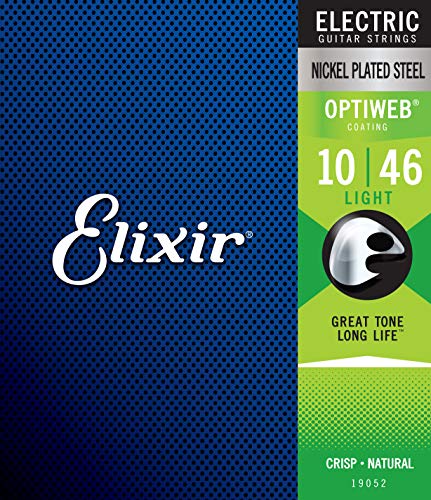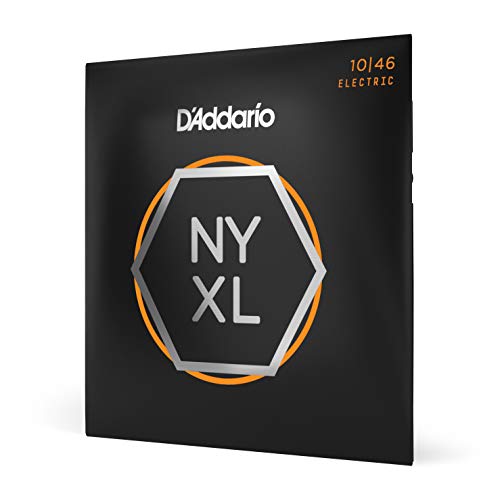When looking for a guitar string, it’s important to know the different types of this product. There are a lot of factors to take into account, and one of them is to choose between coated vs uncoated guitar strings.
Simply put, coated strings are ideal for players who want to improve their sound and tone and still ensure large longevity for their set, while uncoated strings are better for those who want more sustain and a more natural sound. Coated strings will also last longer without the need for replacement.
This guide will teach you what are the differences between coated vs uncoated guitar strings, as well as which one is the best for you in order to make the best decision for your playing style. We will also give you a few tips and tricks to take better care of your instrument and answer some of the frequently asked questions related to the subject.

Coated vs Uncoated Guitar Strings – Table of Content
- Difference Between Coated Vs Uncoated Strings
- What Are Guitar Strings Coated With?
- Are There Any Similarities Between Coated Vs Uncoated Strings?
- Which One is Better for You?
- Frequently Asked Questions
- Conclusion
Difference Between Coated Vs Uncoated Strings
Coated Strings
Coated strings are coated with a thin layer of material that helps prevent buzzing. Coating can also help with tone and sustain, which makes coated guitar strings ideal for those who want more tone without having to replace their strings more often.
Uncoated Strings
Uncoated strings sound more natural, as they aren’t covered in a protective layer by the coating process. Players may need to change their plain strings more often as they wear out or break. However, because of the lack of coating, uncoated guitar strings tend to sound clearer and give off better tone than coated ones.
Which One is the Best?
These two types will work well for different playing techniques, so it’s important to know what is your preferred playing style before choosing one type over another. The best-known difference between these two types is that coated guitar strings have a protective layer and uncoated guitar strings don’t have this extra layer of protection.
For those playing music styles such as pop and rock, the difference won’t matter much but you will get a better lifespan from your strings if you go with a coated set. If you are playing genres such as blues and jazz, where it is important to get a clean and natural sound, prefer uncoated strings.
Also read: Best Acoustic Guitar Strings
What Are Guitar Strings Coated With?
Guitar strings are often coated with polymer, usually Teflon PFT. The coating is applied either to the wound/wrap wire or the steel core wire of the coated strings, depending on which of the strings we are talking about (E, A, D are usually wound strings and G, B, E aren’t, though in most acoustic guitar strings sets the G is also wound).
Are There Any Similarities Between Coated Vs Uncoated Strings?
Both coated and uncoated strings are manufactured from steel, so they are durable and reliable. The main difference between the two types is that coated strings tend to be more expensive than uncoated strings, but they also provide a different sound and tone. Coated strings also typically last longer than uncoated ones.
If you’re looking for a cheaper option, then you should consider uncoated guitar strings. Otherwise, if you want the best of both worlds, go with a coated set.
Recommended: Flatwound Vs Roundwound Guitar Strings
Which One is Better for You?
Uncoated guitar strings are better for those who want more sustain. Coated guitar strings are the ideal choice for players who want their string set to last longer. Here are the main differences between them:
Coated Strings
Pros
- Reduced string breakage.
- Improved, more punchy tone and sound.
- Lasts longer without the need for replacement.
- Less buzzing.
- Better sustain.
Cons
- More expensive than the uncoated counterpart.
- Although more punchy, it sounds less natural. This could be a con for certain music styles.
Uncoated Strings
Pro
- Uncoated strings have a more natural sound.
- Clearer tone.
- Better for certain music styles such as classical guitar.
- Feels great to the touch while playing.
Cons
- Needs more frequently replacement.
- May sound too dark for certain music styles.
Bonus: The Best Coated and Uncoated Guitar Strings
Coated Strings
Ernie Ball Coated Electric Titanium PRS
Ernie Ball is one of the most famous strings manufacturers in the music industry, favored by many professional players and famous guitarists. The Coated Slinky is a hassle-free set of strings with titanium reinforced technology, available in several different gauges and offering a great value for the price.
– – –
Elixir Coated Nickel Guitar Strings
This set of coated Elixir strings has a protective polymer layer that will make them last much longer than their uncoated counterparts. Not only that but the sound and tone are quite natural and it is available in many different gauges as well.
– – –
Uncoated Strings
D'Addario NYXL
The greatest feature about the D’Addario NYXL is that it has the natural tone of noncoated strings while offering the guitarist enough quality to make sure that this set lasts for a long time. Many guitarists swear by the brand and the ability of its string sets to stay in tune and sound loud and clear.
– – –
Fender Pure Nickel Strings
Fender is one of the most famous music brands in the world. These strings are made out of pure nickel and are excellent for those playing rock n roll and blues due to their mellow tonality.
– – –
Frequently Asked Questions
Do Coated Guitar Strings Sound Better?
Do Coated Guitar Strings Squeak Less?
How Much Longer Do Coated Strings Last?
Coated string manufacturers claim that their strings last 2 to 4 times longer than uncoated ones, but in reality, this is not always the case. Some brands may even last longer than uncoated strings do while others do not live up to their claims at all. It really just depends on what kind of coating they use and how well it is applied.
How Often do you Need to Change Uncoated Strings?
How do I Make my Strings Last Longer?
Verdict
The difference between coated and uncoated guitar strings is simple. Coated strings will give your set a longer lifespan while providing your sound with more punch and clarity; Uncoated strings have the most natural sound you can get from your guitar, with the drawback that it will last a shorter time.
Both types are excellent choices and the best option will depend on the style of music you play, whether you play at home or concerts, etc. For those playing pop and rock, either will do, though we recommend you choose a coated set for maximum lifespan. If you play styles such as blues and jazz, it is best to go with an uncoated set for the most natural sound.
Also, consider how often you play and where. If you play at home, for example, your strings will have a significantly longer lifespan than if you were to play concerts, so the type won’t matter much. Remember to take care of your instrument as well: clean the strings and fretboard after every playing session.We hope you liked our coated vs uncoated guitar strings article. Whether you’re a beginner or experienced artist, make sure to check our related articles about the instrument. Don’t forget to share this post with your friends and feel free to contact us if you have any suggestions for our website. Happy playing!
Ian Sniesko is an experienced music producer and musician who loves to share his knowledge about the best audio equipment for making and enjoying great music. For the past 6 years, Ian has written extensively about the audio equipment industry and has contributed to many of the top music magazines.



